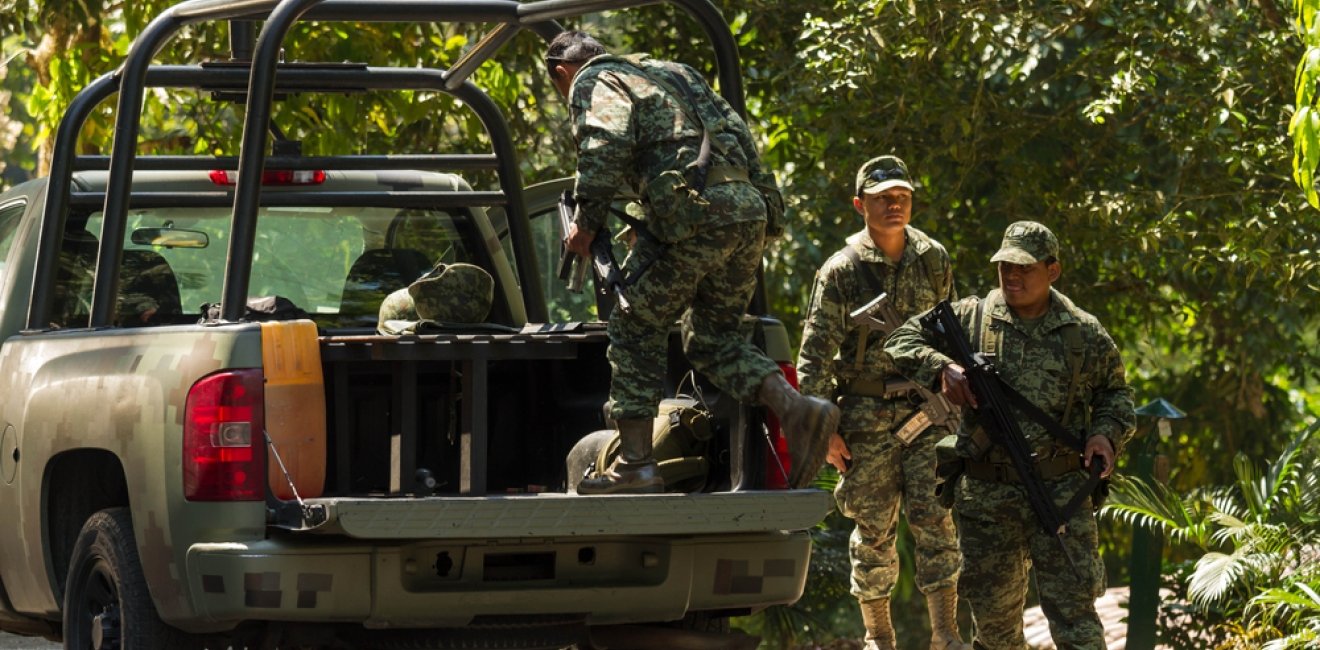With less than a year to go, Mexican president Andrés Manuel López Obrador will end his administration with the worst homicide rates in Mexico’s modern history. Though López Obrador inherited a bloody war against drug cartels from his predecessors, his worst contribution to the ugly situation in Mexico will be his full denial of the country’s security issues.
During his first year as president, in 2019, Mexico registered over 30,000 murders, setting a gruesome record. Mexican officials and security analysts superficially explained this as a consequence of the failed policies of the two prior presidents, Felipe Calderón and Enrique Peña Nieto. Some also argued that the high homicide rates were a natural consequence of the shift in the security policies.
López Obrador early announced two major and emblematic policies regarding national security and the ‘war against cartels’: the National Guard as a new hybrid security corps composed of military and police forces; and the highly criticized ‘hugs not bullets’ approach, calling to stop fighting cartels in the streets with bullets.
But nearly six years later, homicides have not declined significantly and the general security situation in Mexico has worsened, with a record killing of journalists, activists, and politicians - three pillars of a country’s democracy. This year will end with a flattened rate at nearly 16,000 murders, just a few hundred above 2022, according to Mexico’s National Statistics Institute.
2022 was the deadliest year for journalists in Mexico with over 13 murders. Mexico is currently the third most deadly country in the world for journalists just after Iraq and Syria, according to Reporters Without Borders.
This is worrying since the 2024 candidate of the current ruling party, Morena, Claudia Sheinbaum, is perceived as a clear continuation of López Obrador’s administration. She has been López Obrador’s closest collaborator and loyal to his own personal principles.
Perhaps even more worrying, however, is that even though the statistics indicate trends of a declining security situation in Mexico, López Obrador denies the reality of the situation, eliminating an opportunity for open and honest dialogue that could have resulted in better security policies rather than a militarized country and a demagogue slogan.
Over and over López Obrador has downplayed Mexico’s current security crisis attributing it to his political rivals’ “bad faith.” “Mexico is safer than the United States. There is no issue with traveling safely through Mexico. That’s something the US citizens also know, just like our fellow Mexicans that live in the US,” López Obrador said during a morning conference in March 2023. But the reality is that Mexico holds a 29 murder per 100,000 rate while the U.S.’ is at 15 per 100,000, according to official figures.
Denial closes an opportunity to speak honestly about the enormous power criminal organizations have acquired through the years. In some parts of the country, especially in rural areas, criminal power has completely overshadowed the government, replacing it with a shadow government.
Having a conversation about how some areas of Mexico are safe for tourists whereas others count criminal organizations as the de facto law enforcers is not only the truth, but necessary to begin outlying a change.
Mexico’s next president will face a simple yet titanic challenge: speaking with truth. This is a small change in the discourse that could be the beginning of a healing era for the country. The right approach to start disentangling Mexico’s security issues comes with the responsibility that only truth beholds and only then policymakers could propose a new set of rules for a game that all previous and present administrations have been playing wrong.
Author


Mexico Institute
The Mexico Institute seeks to improve understanding, communication, and cooperation between Mexico and the United States by promoting original research, encouraging public discussion, and proposing policy options for enhancing the bilateral relationship. A binational Advisory Board, chaired by Luis Téllez and Earl Anthony Wayne, oversees the work of the Mexico Institute. Read more

Explore More
Browse Insights & Analysis
Greenland’s New Governing Coalition Signals Consensus

The Future of France's Far-Right Party

Ukrainian Issue in Polish Elections



